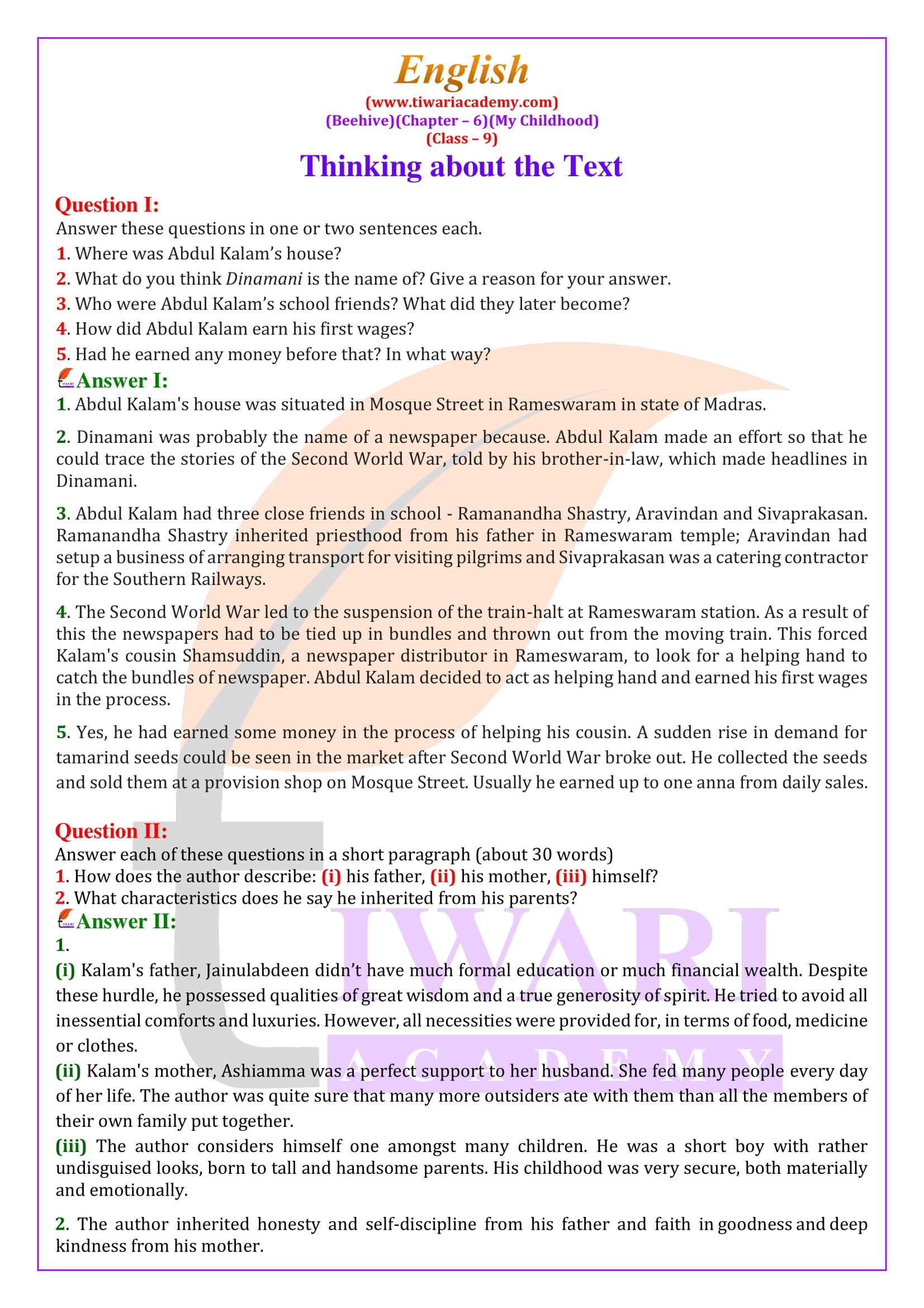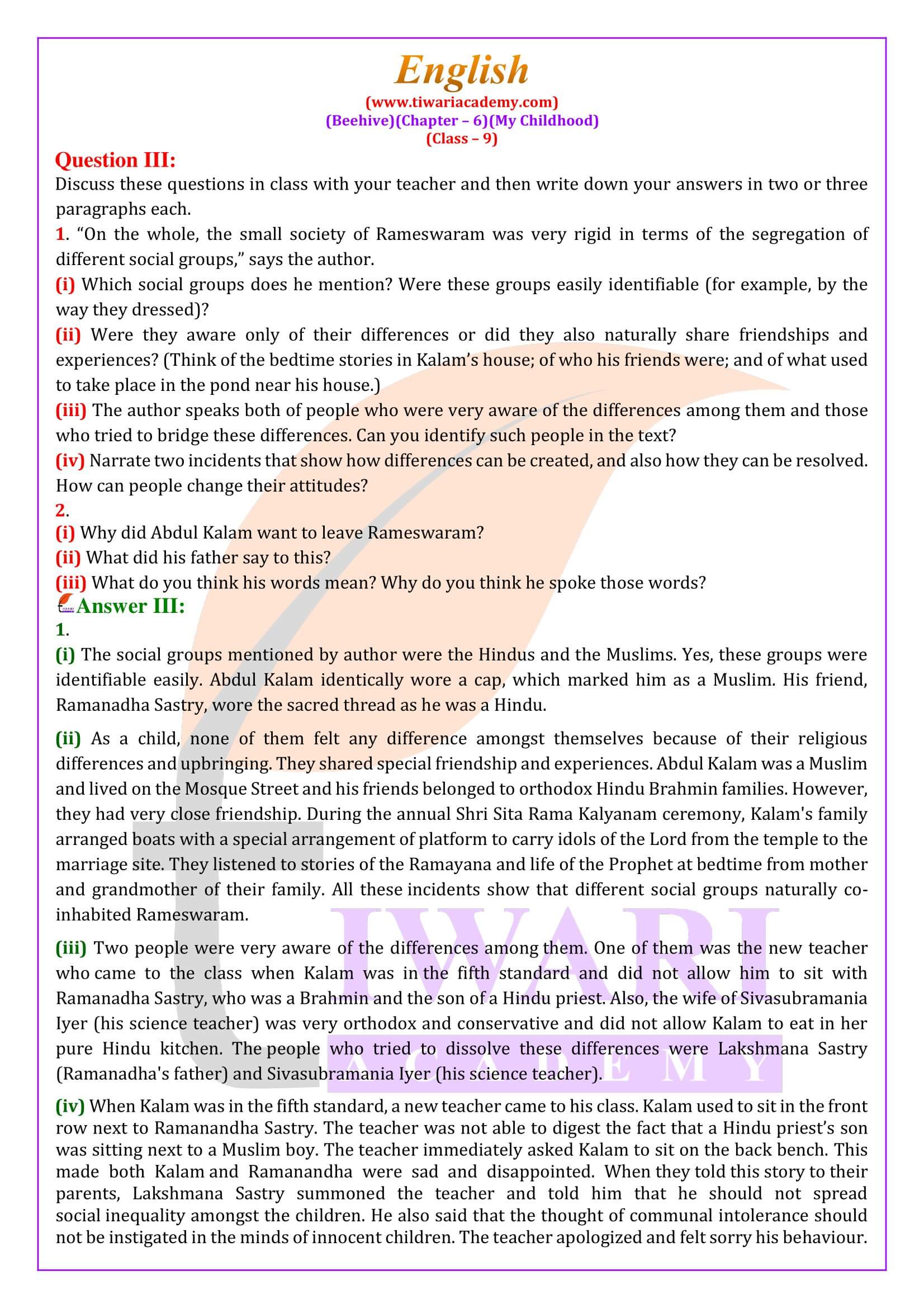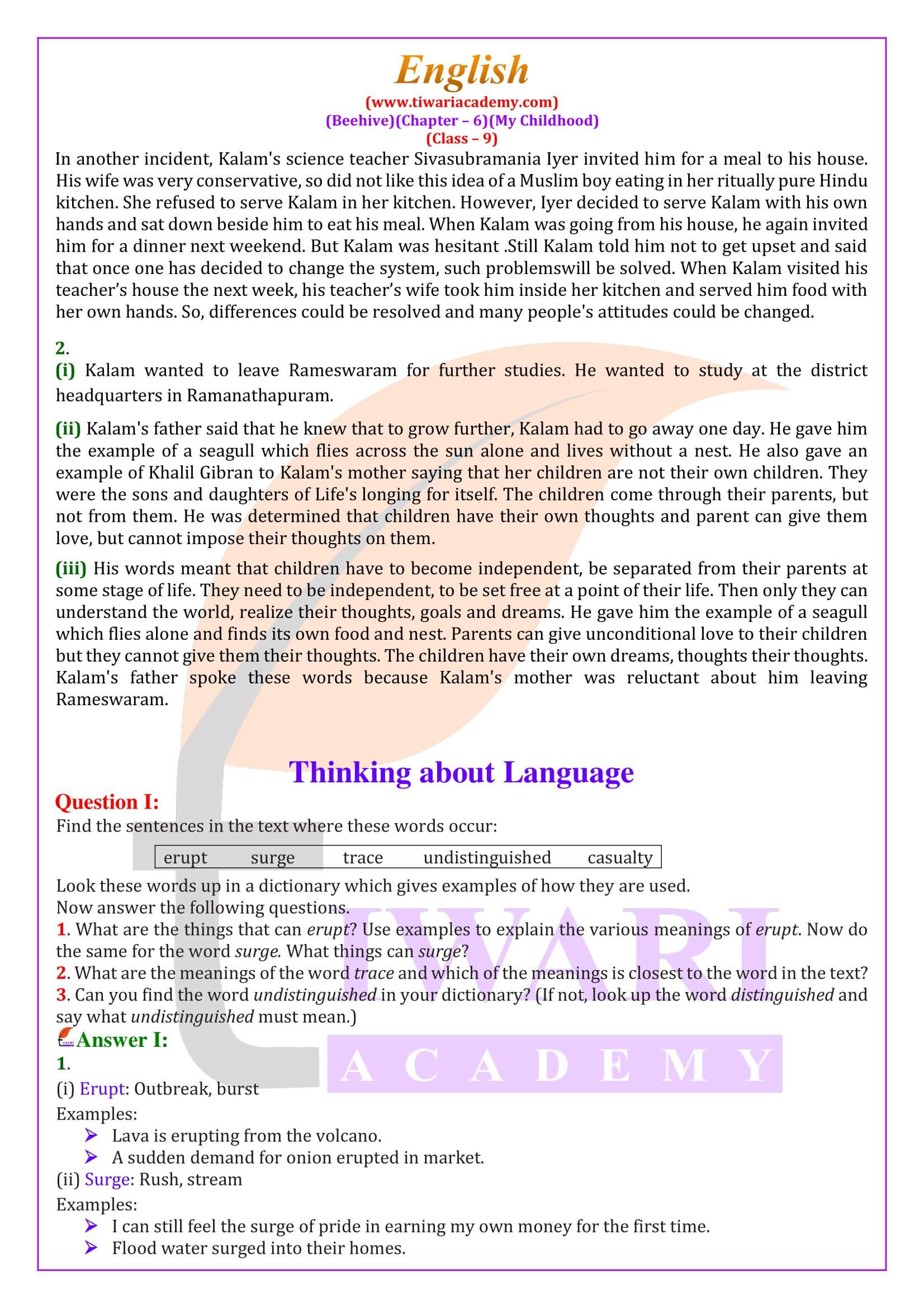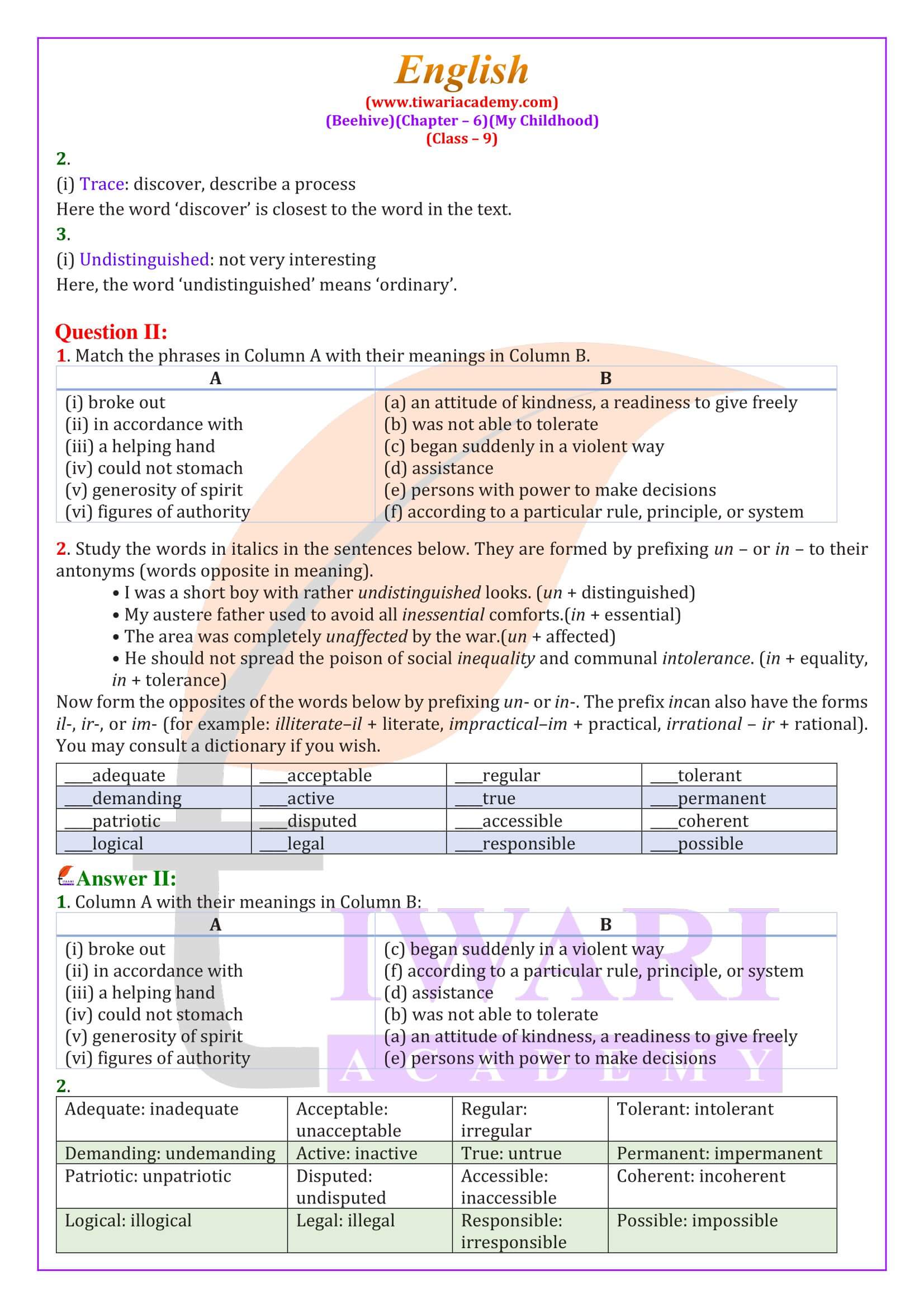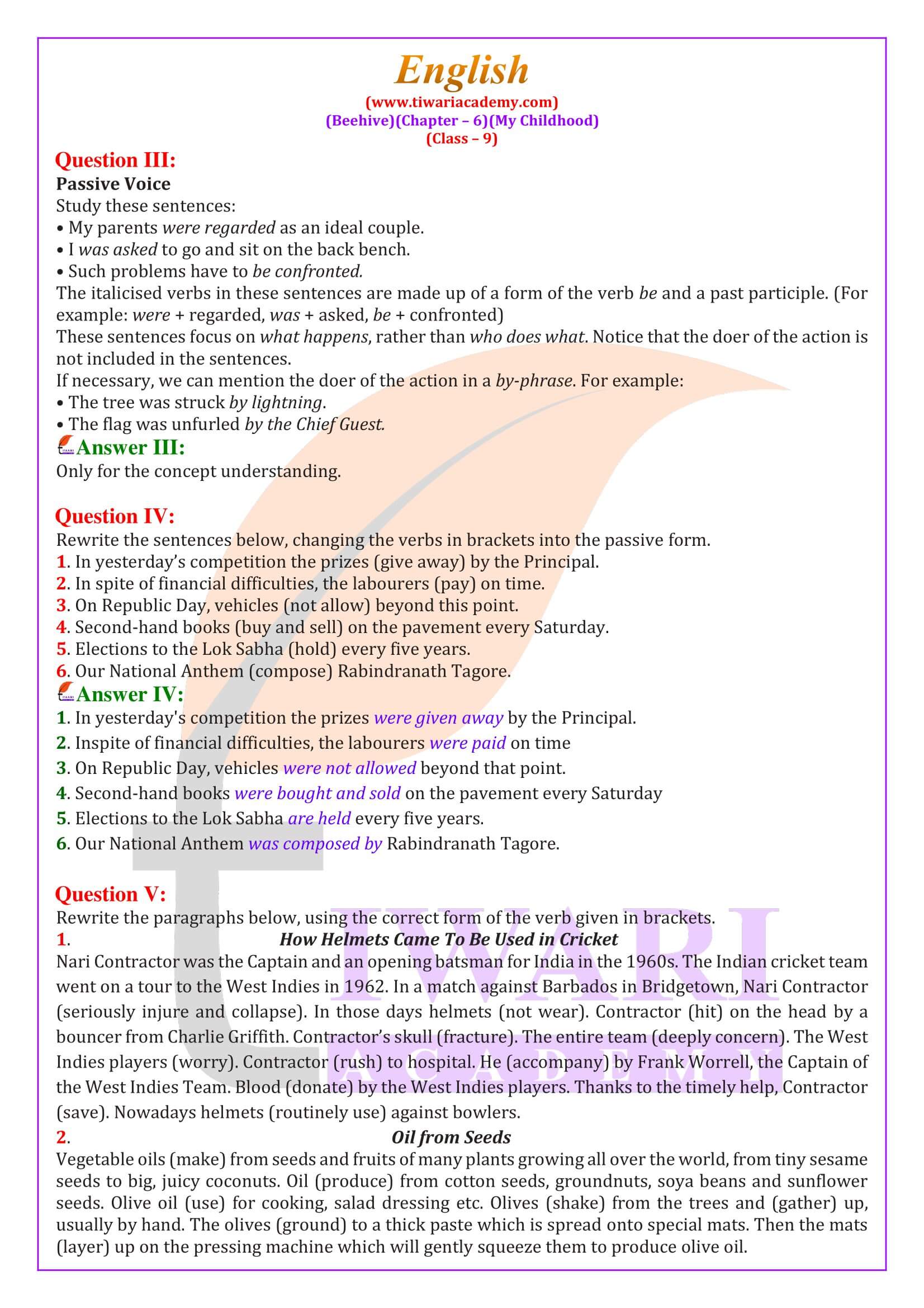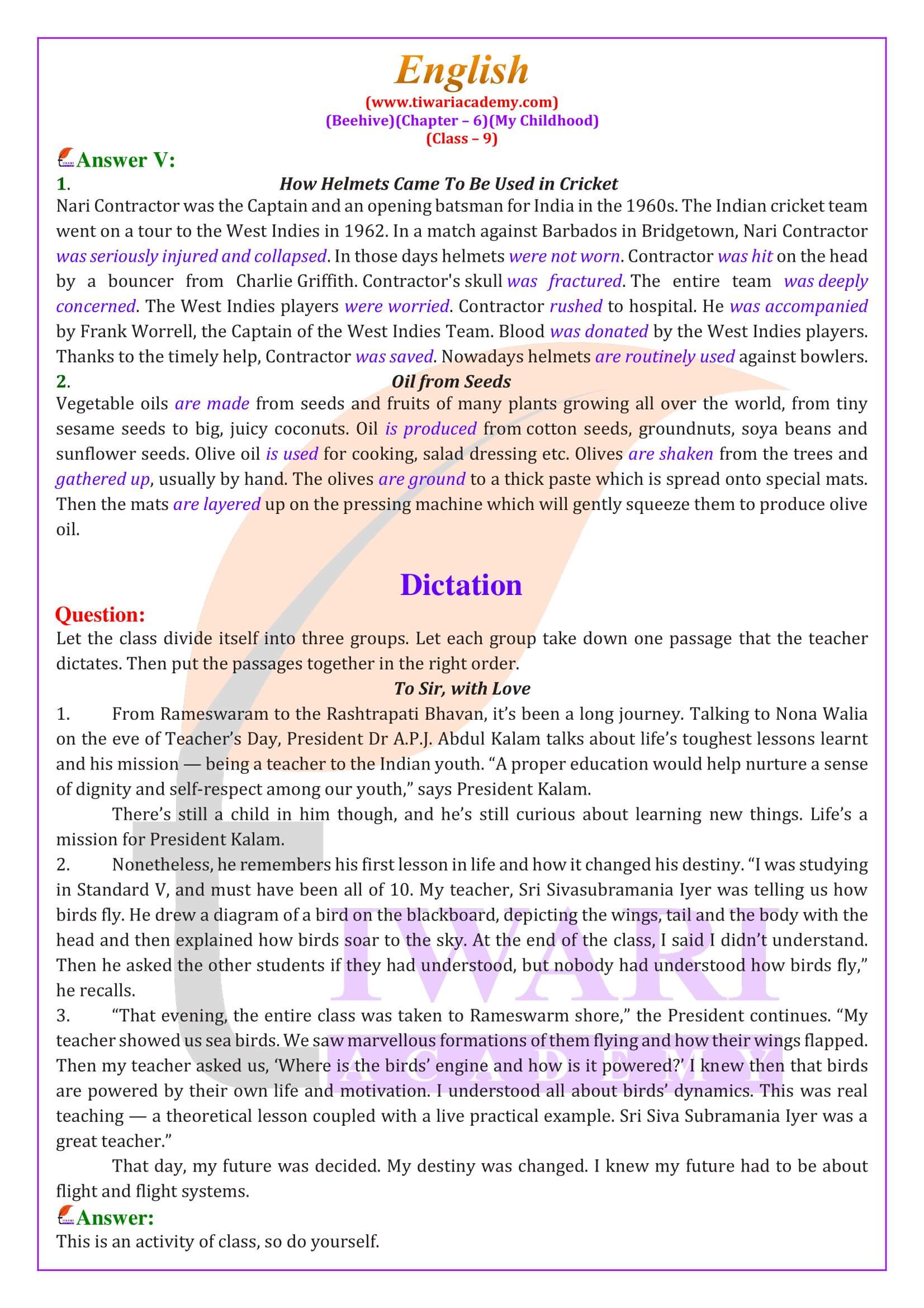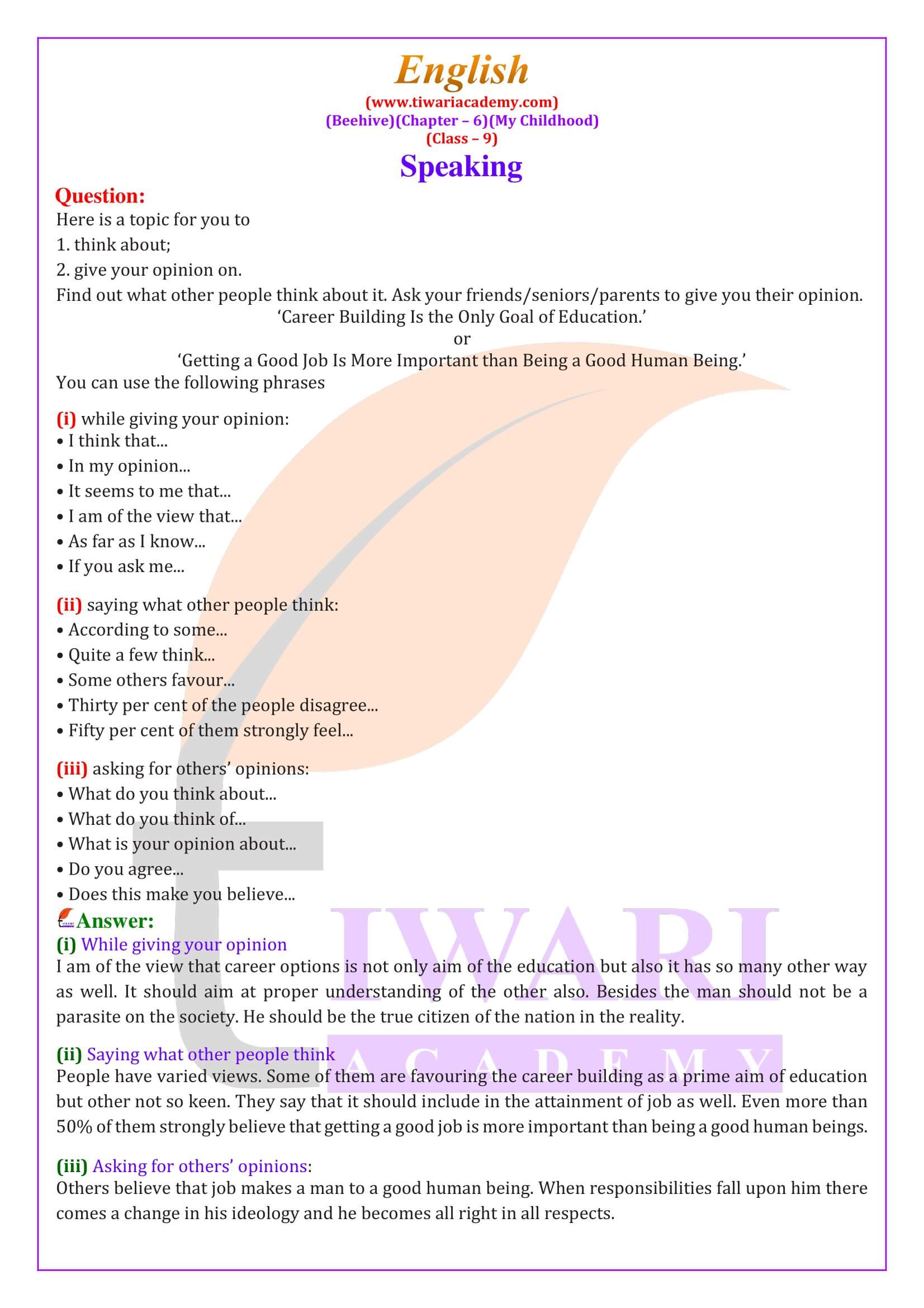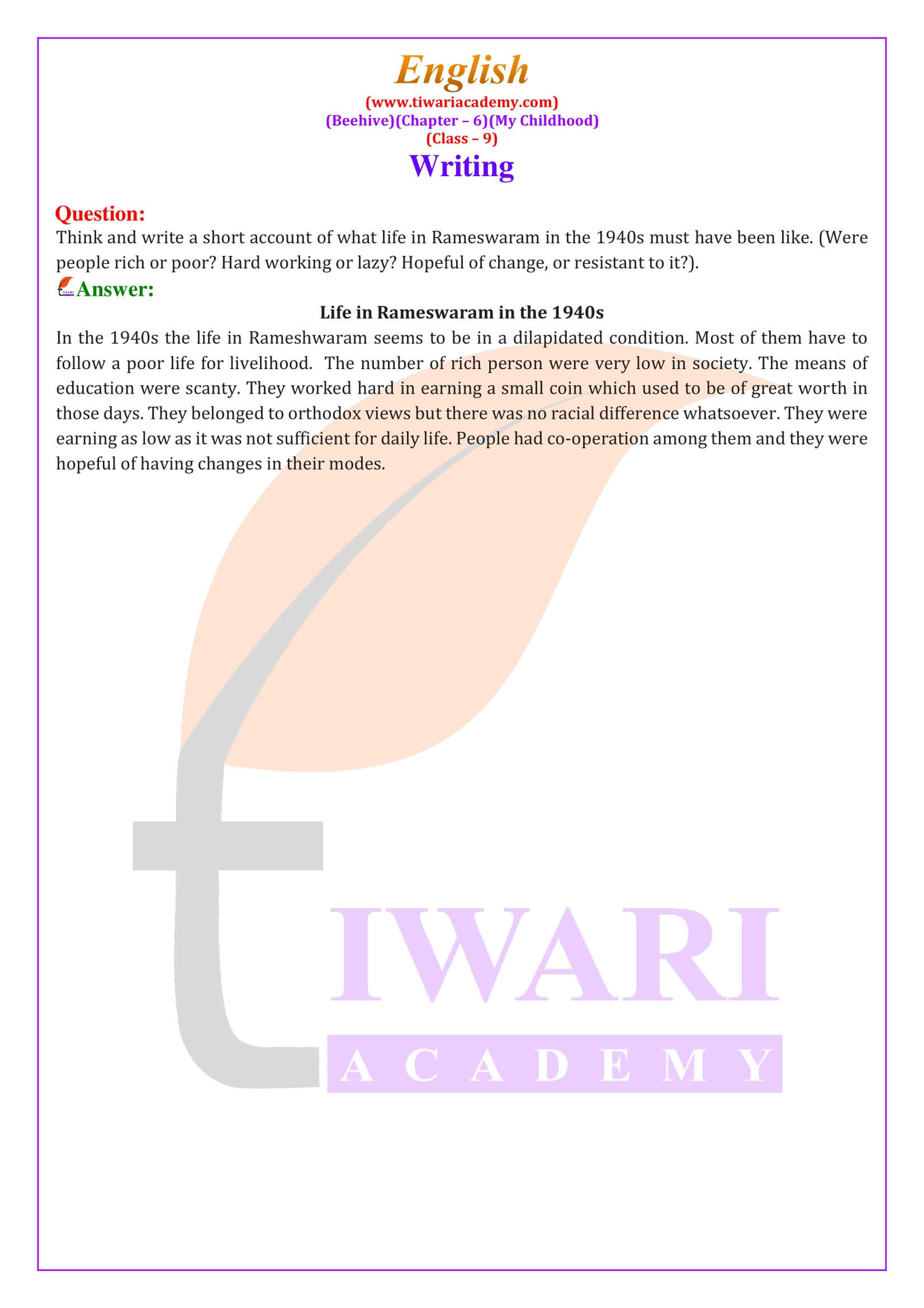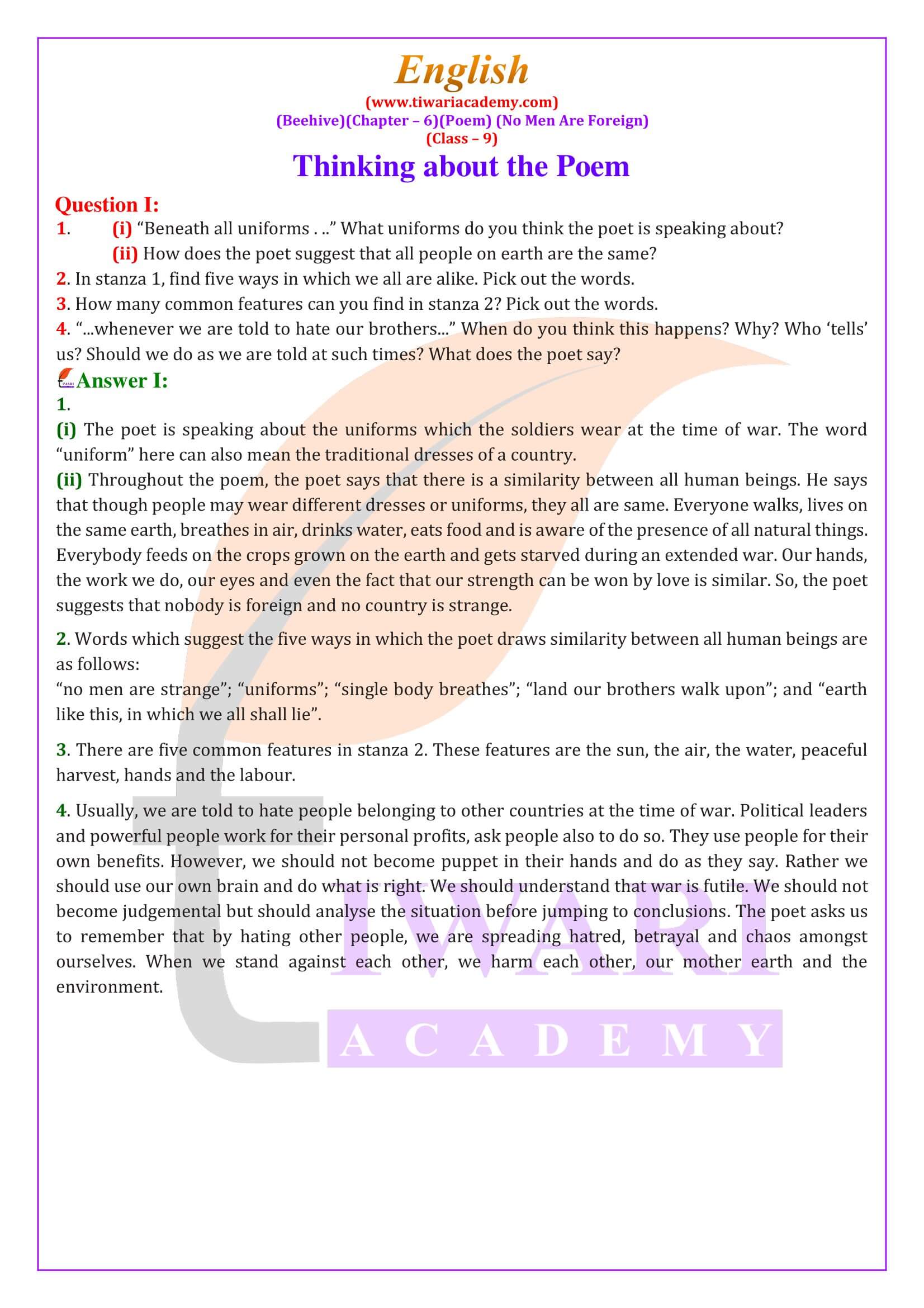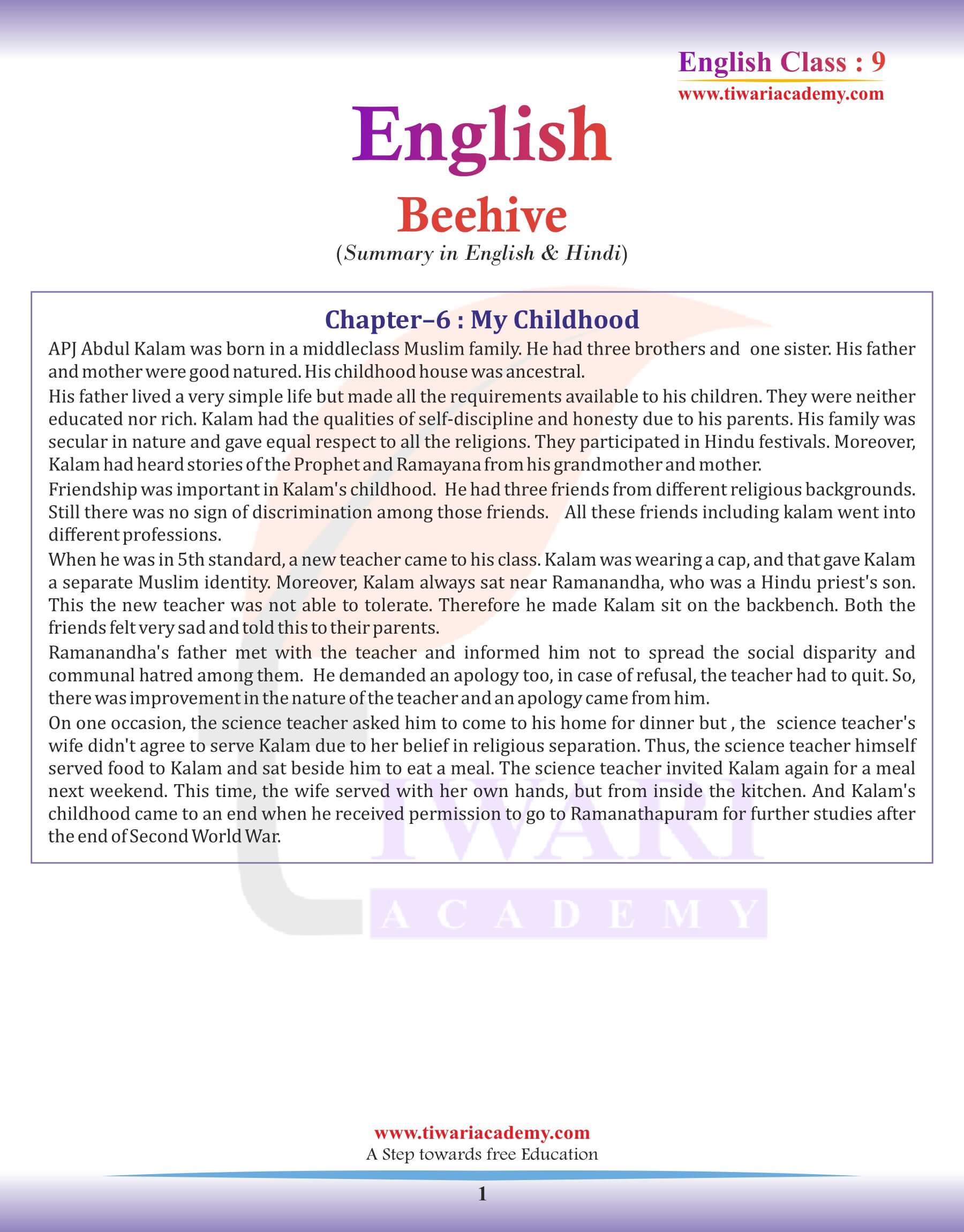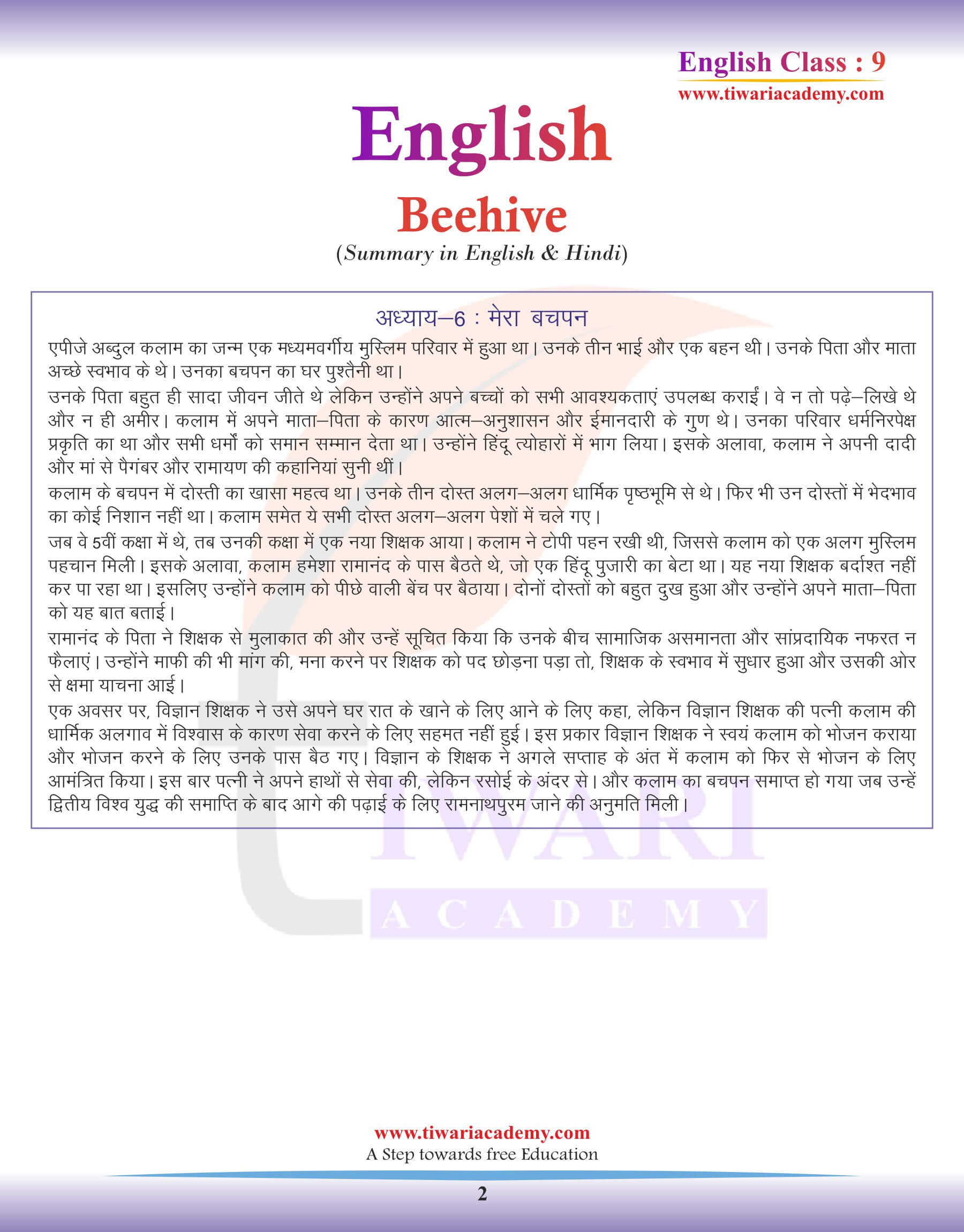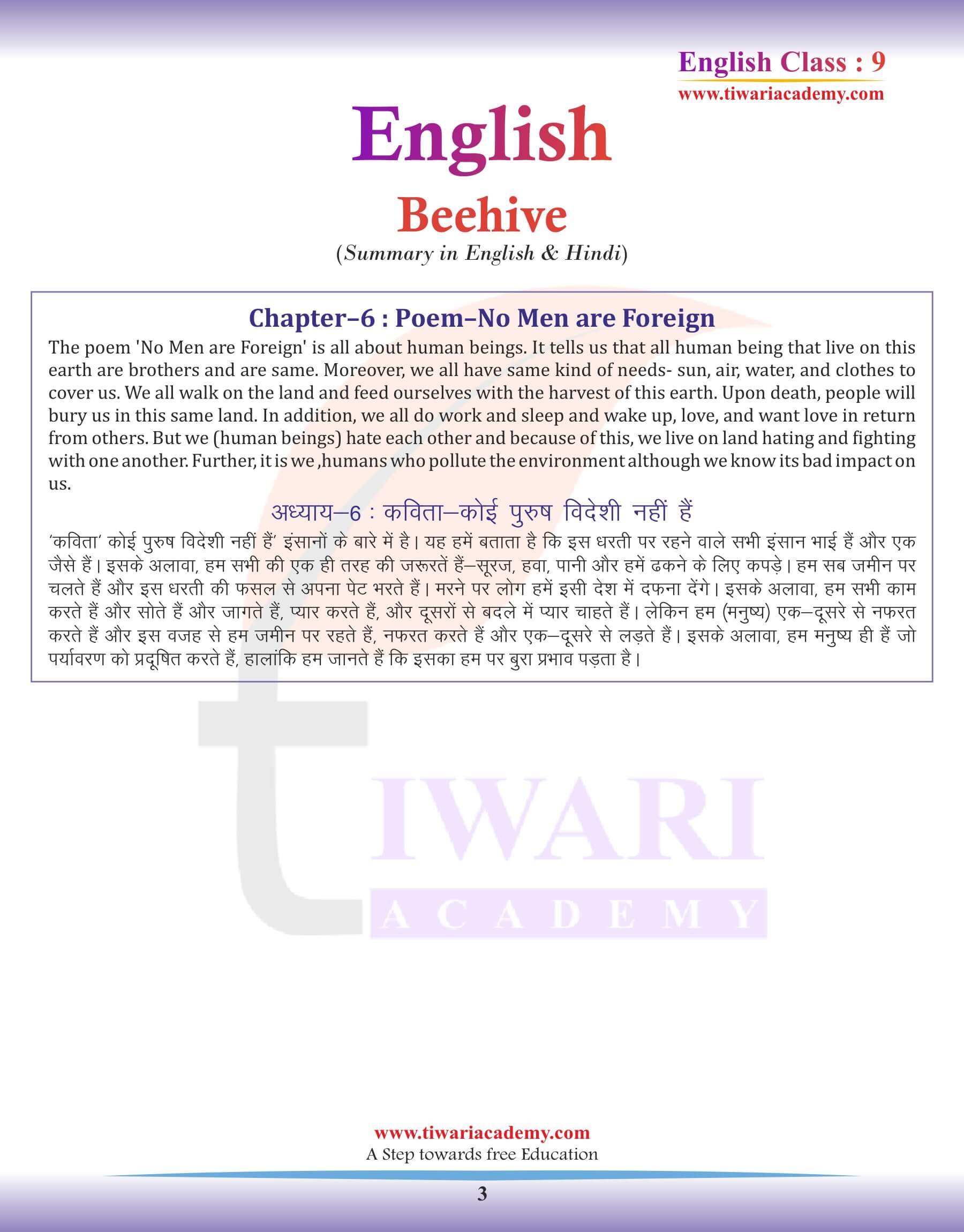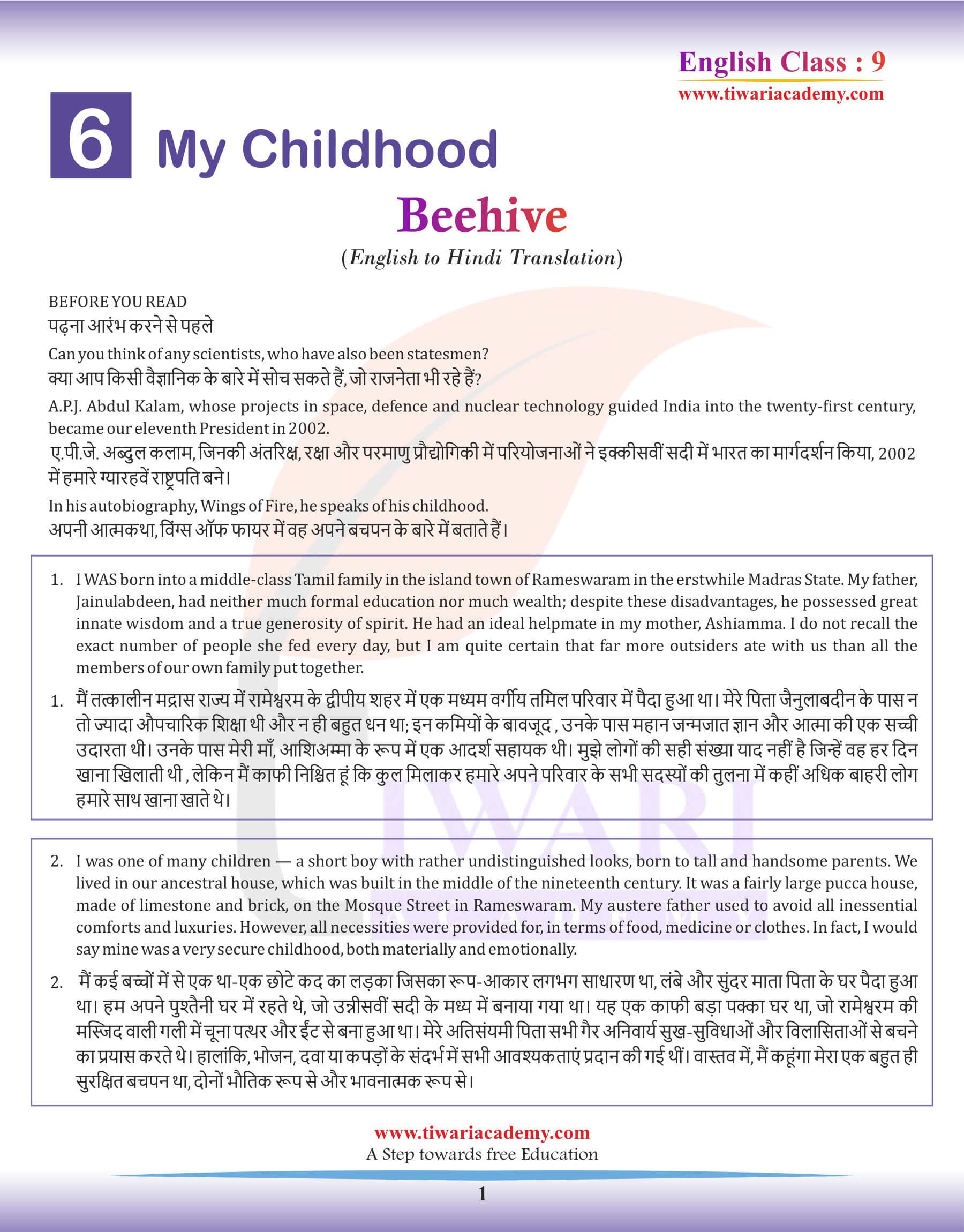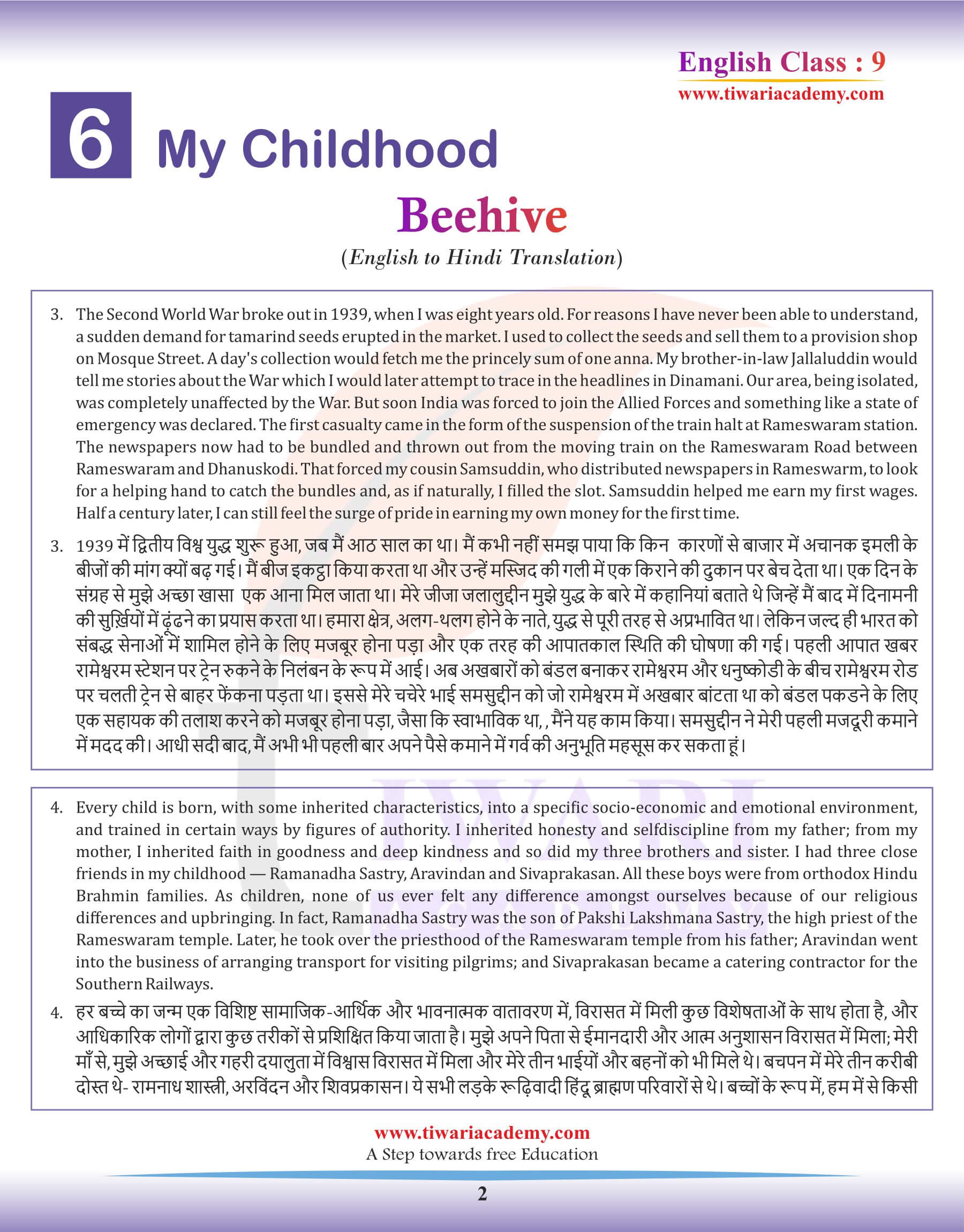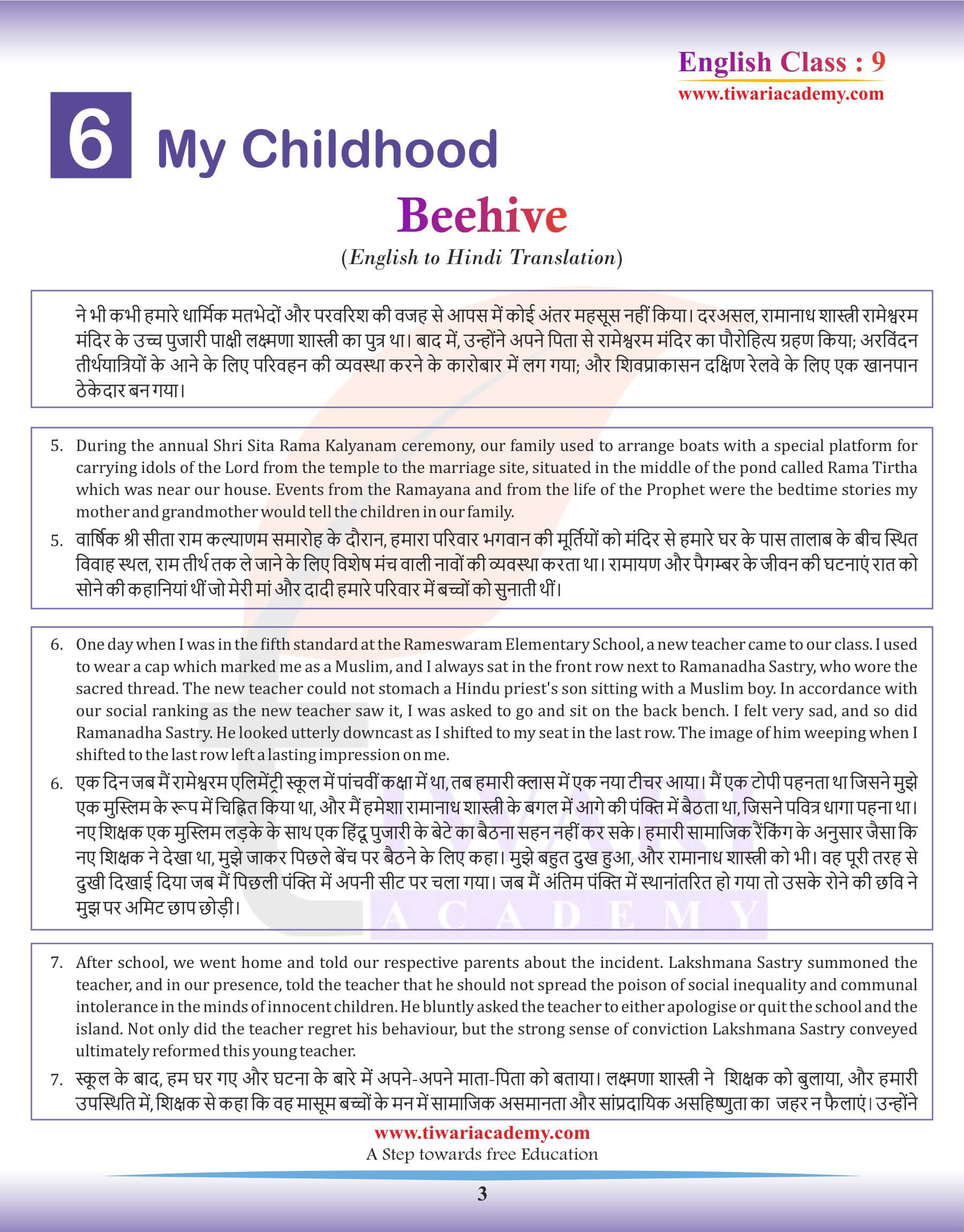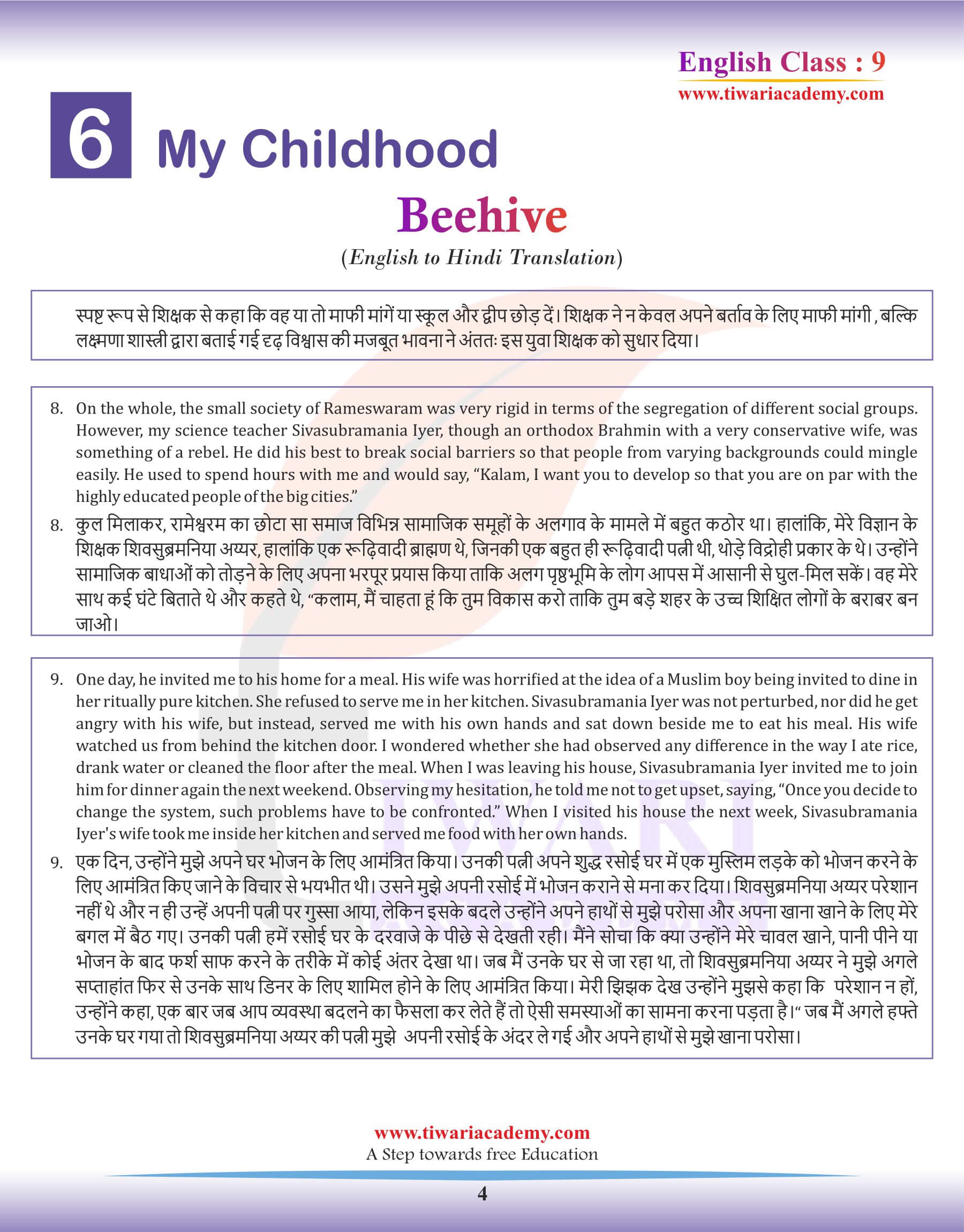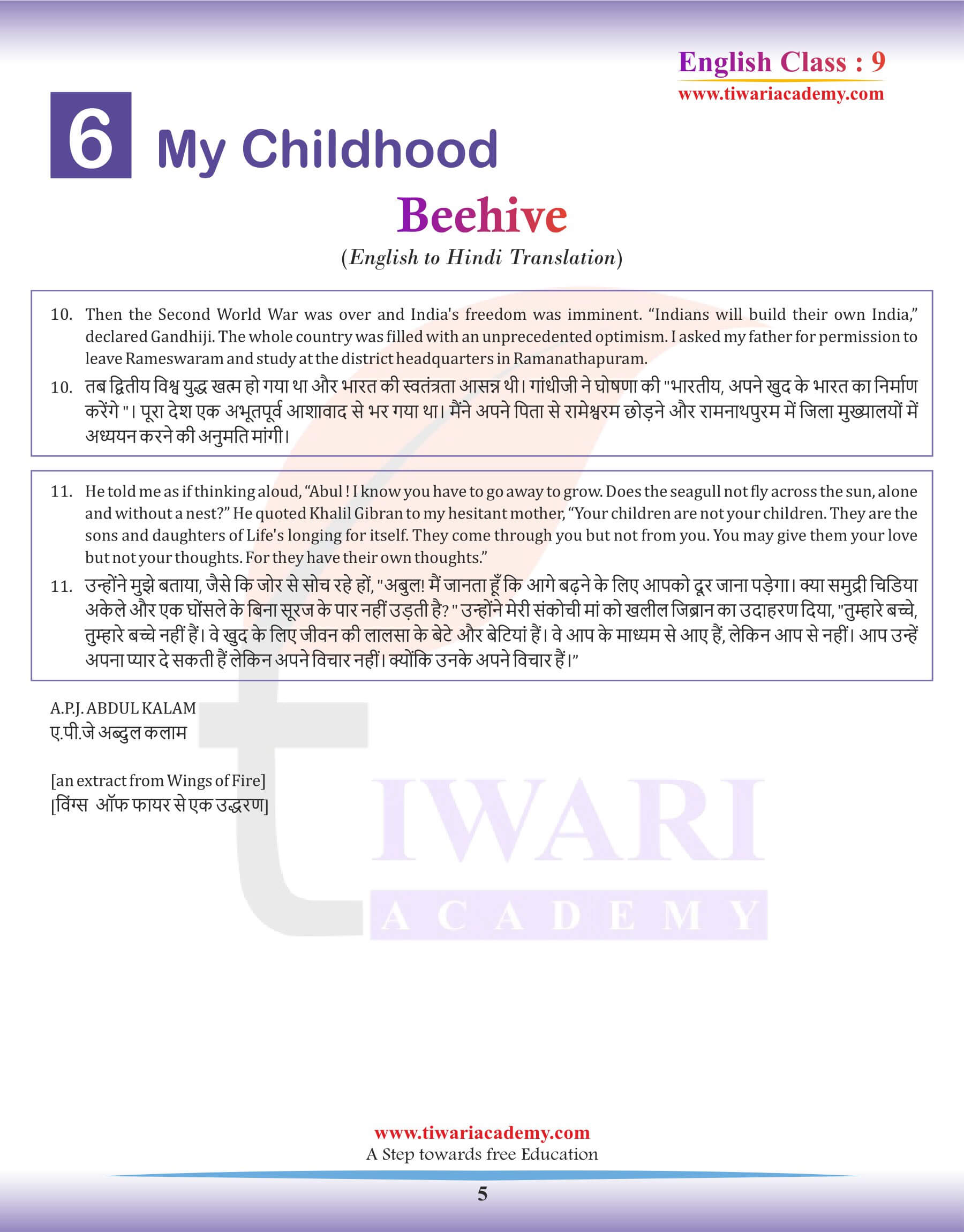NCERT Solutions for Class 9 English Beehive Chapter 6 My Childhood and the poem No Men are Foreign in Hindi Medium (Hindi Translation) Summary in Hindi and English. The question answers are modified according to rationalised NCERT books published for new academic year 2025-26.
NCERT Solutions for Class 9 English Beehive Chapter 6
Class 9 English Chapter 6 Question Answers
- Class 9 English Beehive Chapter 6 My Childhood
- Class 9 English Beehive Chapter 6 Poem No Men are Foreign
- Class 9 English Beehive Chapter 6 Summary
- Class 9 English Beehive Chapter 6 Hindi Translation
- Class 9 English Beehive Chapter 6 NCERT Book
- Class 9 English NCERT Solutions
- Class 9 all Subjects NCERT Solutions
| Class: 9 | English |
| Textbook: | English Reader – Beehive |
| Chapter 6: | My Childhood |
| Content: | Summary, Translation and Solutions |
| Mode of Content: | PDF, Images and Videos |
| Academic Session: | 2025-26 |
9th English Beehive Chapter 6 Question – Answers
Question – Answers of Class 9 English Beehive Chapter 6 My Childhood and the poem No Men are Foreign are given here for free to use or download in PDF form. All the solutions are updated for new academic session 2025-26. Download NCERT Books based on latest CBSE Syllabus 2025-26.
Passages for Comprehension
I. READ THE PASSAGE GIVEN BELOW AND ANSWER THE QUESTIONS THAT FOLLOW:
He looked utterly downcast as I shifted to my seat in the last row. The image of him weeping when I shifted to the last row left a lasting impression on me.
Questions:
1. Whom does ‘he’ refer to in the above lines?
2. Why was he sad and depressed?
3. Name the lesson.
II. READ THE PASSAGE GIVEN BELOW AND ANSWER THE QUESTIONS THAT FOLLOW:
That forced my cousin Samsuddin, who distributed newspapers in Rameswarm, to look for a helping hand to catch the bundles and, as if naturally, I filled the slot. Samsuddin helped me earn my first wages. Half a century later, I can still feel the surge of pride in earning my own money for the first time.
Questions:
1. Who does ‘I’ in the passage refer to?
2. How did ‘I’ earn his first wages?
3. What would the writer’s cousin do?
III. READ THE PASSAGE GIVEN BELOW AND ANSWER THE QUESTIONS THAT FOLLOW:
His wife watched us from behind the kitchen door. I wondered whether she had observed any difference in the way I ate rice, drank water or cleaned the floor after the meal. When I was leaving his house, Sivasubramania Iyer invited me to join him for dinner again the next weekend. Observing my hesitation, he told me not to get upset, saying, “Once you decide to change the system, such problems have to be confronted.” When I visited his house the next week, Sivasubramania Iyer’s wife took me inside her kitchen and served me food with her own hands.
Questions:
1. Who does ‘His wife’ refers to?
2. Why did the wife watch them from behind the kitchen door?
3. Name the lesson.
Suggested Answers of Passages
Answers for Passage I:
1. ‘He’ refers to Ramanadha Sastry, one of the close friend of Dr. Kalam.
2. Ramanadha Sastry was sad and depressed because Abdul Kalam, being a Muslim, was asked by the teacher to sit on the back bench. This new teacher was narrow minded and considered Muslim as inferiors in social ranking as compared to a Hindu boy.
3. The name of the lesson is ‘My Childhool’.
Answers for Passage II:
1. ‘I’ refer to Abdul Kalam.
2. By helping his cousin’s work of newspaper distribution, ‘I’ earn his first wages.
3. The writer’s cousin distributed newspaper in Rameswaram.
Class 9 English Beehive Chapter 6 – Important Questions
Where was Abdul Kalam’s house?
Abdul Kalam’s house was situated in Mosque Street in Rameswaram in state of Madras.
What do you think Dinamani is the name of? Give a reason for your answer.
Dinamani was probably the name of a newspaper because. Abdul Kalam made an effort so that he could trace the stories of the Second World War, told by his brother-in-law, which made headlines in Dinamani.
Who were Abdul Kalam’s school friends? What did they later become?
Abdul Kalam had three close friends in school – Ramanandha Shastry, Aravindan and Sivaprakasan. Ramanandha Shastry inherited priesthood from his father in Rameswaram temple; Aravindan had setup a business of arranging transport for visiting pilgrims and Sivaprakasan was a catering contractor for the Southern Railways.
How did Abdul Kalam earn his first wages?
The Second World War led to the suspension of the train-halt at Rameswaram station. As a result of this the newspapers had to be tied up in bundles and thrown out from the moving train. This forced Kalam’s cousin Shamsuddin, a newspaper distributor in Rameswaram, to look for a helping hand to catch the bundles of newspaper. Abdul Kalam decided to act as helping hand and earned his first wages in the process.
Had he earned any money before that? In what way?
Yes, he had earned some money in the process of helping his cousin. A sudden rise in demand for tamarind seeds could be seen in the market after Second World War broke out. He collected the seeds and sold them at a provision shop on Mosque Street. Usually he earned up to one anna from daily sales.
(i) Kalam’s father, Jainulabdeen didn’t have much formal education or much financial wealth. Despite these hurdle, he possessed qualities of great wisdom and a true generosity of spirit. He tried to avoid all inessential comforts and luxuries. However, all necessities were provided for, in terms of food, medicine or clothes.
(ii) Kalam’s mother, Ashiamma was a perfect support to her husband. She fed many people every day of her life. The author was quite sure that many more outsiders ate with them than all the members of their own family put together.
(iii) The author considers himself one amongst many children. He was a short boy with rather undisguised looks, born to tall and handsome parents. His childhood was very secure, both materially and emotionally.
What characteristics does he say he inherited from his parents?
The author inherited honesty and self-discipline from his father and faith in goodness and deep kindness from his mother.
Why did Abdul Kalam want to leave Rameswaram?
Kalam wanted to leave Rameswaram for further studies. He wanted to study at the district headquarters in Ramanathapuram.
What did his father say to this?
Kalam’s father said that he knew that to grow further, Kalam had to go away one day. He gave him the example of a seagull which flies across the sun alone and lives without a nest. He also gave an example of Khalil Gibran to Kalam’s mother saying that her children are not their own children. They were the sons and daughters of Life’s longing for itself. The children come through their parents, but not from them. He was determined that children have their own thoughts and parent can give them love, but cannot impose their thoughts on them.
What do you think his words mean? Why do you think he spoke those words?
His words meant that children have to become independent, be separated from their parents at some stage of life. They need to be independent, to be set free at a point of their life. Then only they can understand the world, realize their thoughts, goals and dreams. He gave him the example of a seagull which flies alone and finds its own food and nest. Parents can give unconditional love to their children but they cannot give them their thoughts. The children have their own dreams, thoughts their thoughts. Kalam’s father spoke these words because Kalam’s mother was reluctant about him leaving Rameswaram.
Think and write a short account of what life in Rameswaram in the 1940s must have been like.
Life in Rameswaram in the 1940s: In the 1940s the life in Rameshwaram seems to be in a dilapidated condition. Most of them have to follow a poor life for livelihood. The number of rich person were very low in society. The means of education were scanty. They worked hard in earning a small coin which used to be of great worth in those days. They belonged to orthodox views but there was no racial difference whatsoever. They were earning as low as it was not sufficient for daily life. People had co-operation among them and they were hopeful of having changes in their modes.
Answers for Passage III:
1. ‘His wife’ refers to Sivasubramania’s wife.
2. The wife watch them from behind the kitchen door because it was a new experience.
3. The name of the lesson is ‘My Childhood’.
What does the part of biography in chapter 6 from class 9th Beehive tell us about the society during and pre independence?
I think the story showed the people creating difference based on their cast. As many times it is mentioned as Priest and Muslims in the story. Though it is also showed that the people and parents taking side of children to remove such problems out of the society.
According chapter 6 from class 9th Beehive, what are your thought about the story of our Former president A.P.J. Abdul Kalam?
I like the story of our Former President Kalam as the part of the story shows us how he yields the foundation of his great knowledge and his contribution to the science and country. The part is small so we only get to know about his childhood and parents. The best part is that the author tried to include all the important incident of his life into this chapter.
Do you think the story of unit 6 from class 9th Beehive, can be cover in one day?
I think the story is not long for the readers and to help them more author published the story in points and included only limited and important incidents.
What are the basic teachings of the poem of unit 6 from class 9th Beehive?
I think the basic teaching of the poem is that under the same sky we all are human breathing same air. Still if we are shooting and raising violence against each other then we are abandoning the humanity.
What is your thought about the poem chapter 6 from class 9th Beehive?
I think the poem is beautiful and the teachings about the humanity and peace is the message to spread. The poem teaches us about the Noble human nature.
After reading the poem unit 6 from class 9th Beehive, what do you think about the language of the poem?
I think the language is easy to understand. This made the poem beautiful to read and interesting.
